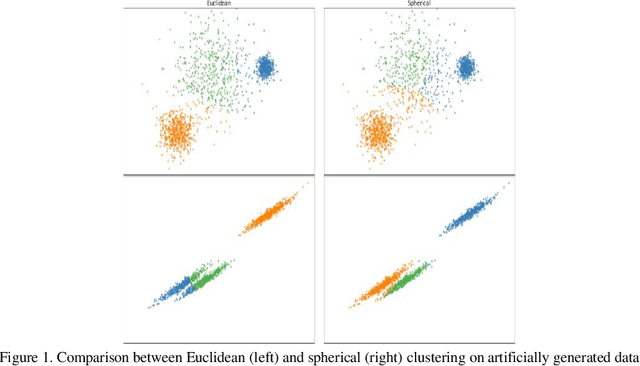Abbas Salemi
DISCERN: Diversity-based Selection of Centroids for k-Estimation and Rapid Non-stochastic Clustering
Oct 14, 2019



Abstract:As one of the most ubiquitously applied unsupervised learning methods, clustering has also been known to have a few disadvantages. More specifically, parameters such as the number of clusters and neighborhood radius are what call the `unsupervised` nature of these algorithms into question. Moreover, the stochastic nature of a great number of these algorithms is also a considerable point of weakness. In order to address these issues, we propose DISCERN which can serve as an initialization algorithm for K-Means, finding suitable centroids that increase the performance of K-Means. Following that, the algorithm can estimate the number of clusters if need be. The algorithm does all of that, while maintaining complete robustness and returning the same results at each separate run. We ran experiments on the proposed method processing multiple datasets and the results show its undeniable superiority in terms of results, computational time and robustness when compared to the randomized K-Means and K-Means++ initialization. In addition, the superiority in estimating the number of clusters is also discussed and we prove the lower complexity when compared to methods such as the elbow and silhouette methods in estimating the number of clusters.
 Add to Chrome
Add to Chrome Add to Firefox
Add to Firefox Add to Edge
Add to Edge